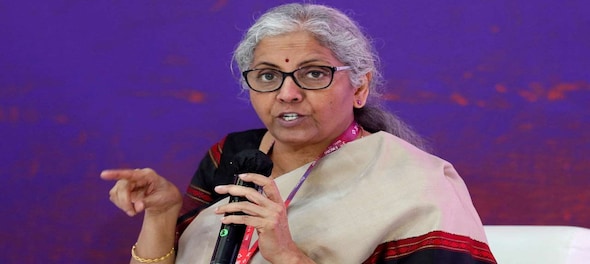
With the upcoming Union Budget 2024, or interim budget, set to be unveiled on February 1 ahead of the general elections, sectors like microfinance and travel, and of course individual taxpayers, are looking forward to some positive breaks.
The pre-Budget expectations range from more tax sops for individuals to additional benefits for women (to encourage investments), measures to support niche sectors served by microfinance, and removal of the disparity between Indian and overseas online travel agencies (OTAs) for TCS (tax collected at source) purposes, and a lot more.
Here are some important voices that want to be heard in the run-up to Budget 2024:
Microfinance
Dr Alok Misra, CEO and Director of Microfinance Industry Network (MFIN), the industry association for microfinance and an RBI-recognised self-regulatory organisation said, "RBI-regulated microfinance institutions as of date provide collateral-free doorstep credit to 71 million low-income women clients. The contribution of microfinance to the inclusive growth story of India requires some critical policy support."
He added, "First, MFIN has been advocating for dedicated funding support for microfinance institutions with a special focus on small- and medium-sized institutions. Secondly, though the loans are unsecured, there is no suitable guaranteed mechanism available for the sector. A sector-suited guarantee scheme will go a long way in boosting the credit rating of microfinance institutions as well as their ability to expand to difficult areas."
Corporate tax and sops for women
Similarly, Harsh Gahlaut, Co-Founder and CEO of FinEdge, outlined his expectations: "Further reduction in corporate tax rates, now that direct and indirect tax collections are showing a robust trend. This would be keeping in line with the glide path the government has spoken about in the past. A tax reduction at this point would encourage business sentiment as a whole and would be an investment toward stronger tax collections in the future. Reducing double tax whammy on dividends paid to shareholders.
"This double taxation is a dampener for return on investments (RoI) as first, the business pays tax on profits and then pays dividend distribution tax once again when the dividend is paid out. Investors who have put up risk capital while investing in business should also be able to withdraw profits as ease of doing business without having to pay taxes twice.
"Lastly, additional sops or incentives for women to invest: This could be in the form of tax savings over and above the current structures and would enable a structural change in the social fabric of the country. Such sops exist in real estate (lower registration charges) and have helped many women in having registered properties in their name."
Travel sector
When it comes to the expectations of the travel and tourism industry, Rajesh Magow, Co-Founder and Group CEO of MakeMyTrip, said, "Aviation turbine fuel (ATF) accounts for a significant portion of the airline's operational costs. While the central government has encouraged state governments to reduce VAT on ATF, the finance minister can consider a broader policy framework that indirectly affects the cost of ATF, like central excise duties and customs duties.
"The reduction in ATF (prices) could catalyse a domino effect, increasing air travel frequency, bolstering airport revenues, and enhancing connectivity to various tourist destinations. Improved accessibility can significantly boost tourism, benefiting local economies and contributing to national economic growth.
Also Read: Budget 2024: Economists weigh in on expectations for fiscal deficit, divestment, and more
"Learning from our Asian neighbours, implementing visa-free entry for tourists from India’s top 15 feeder markets can help substantially increase foreign tourist arrivals. This initiative will not only put India on a competitive footing in the global tourism market but also foster a reciprocal environment.”
Magow further said, "The government could encourage corporations to invest their CSR funds in developing and improving tourist destinations. This approach can lead to developing new attractions and upgrading existing ones while offering tax benefits to the corporations involved. A weighted deduction under income tax along with input tax credit under GST on CSR funds deployed to improve tourist destinations will garner larger participation from the private sector. Such a symbiotic relationship not only helps preserve tourist sites but also ensures all-around sustainable development."
"Also, (the government should) consider offering tax incentives to hotels and homestays for adopting sustainable practices aligned with India's commitment to the United Nations Sustainable Development Goals, particularly SDG 11 (Sustainable Cities and Communities) and SDG 13 (Climate Action). By offering tax incentives that promote eco-friendly measures in the tourism sector, such as energy-efficient lighting, water-saving devices, and waste-reduction practices, the finance minister will be encouraging the industry to contribute to these global goals," Magow pointed out.
"Most importantly, the travel industry has pitched that the government should take this opportunity to remove all disparities between Indian and overseas online travel agencies (OTAs), as well as different modes of payment. For example, OTAs operating a permanent establishment in India are mandated to collect 20% TCS for spends above ₹7 lakh by an individual in a financial year on overseas travel, including tour packages.
"In contrast, the foreign-based OTAs do not collect TCS, and the non-applicability of GST or direct taxes allows them to offer lower costs to Indian citizens. The differential regulations, which give an unfair advantage to foreign-based entities, need to be addressed," Magow added.
It remains to be seen whether the interim budget will live up to these high hopes as the finance minster has already tried to turn down the volume of expectations somewhat.
(Edited by : Shoma Bhattacharjee)
First Published: Jan 17, 2024 6:31 PM IST
Check out our in-depth Market Coverage, Business News & get real-time Stock Market Updates on CNBC-TV18. Also, Watch our channels CNBC-TV18, CNBC Awaaz and CNBC Bajar Live on-the-go!


Exclusive | Full text of the PM interview: Modi's agenda for the next 5 years
Apr 29, 2024 10:28 PM
PM Modi says he’s going forward with a positive attitude as a response to personal attacks
Apr 29, 2024 10:08 PM

